– All right, a little something a little bit different this week on the podcast. We have Derek Walters. May be a bit unknown to a lot of you guys out there, but he is big in the poker staking business, and with WSOP coming up, I know you're going to be tempted to buy a piece of somebody in something somewhere. So Derek is here to tell you how to do that and to give us his story. So thanks for coming on, Derek.
– Yeah, I'm happy to be here. Yeah, thanks for having me.
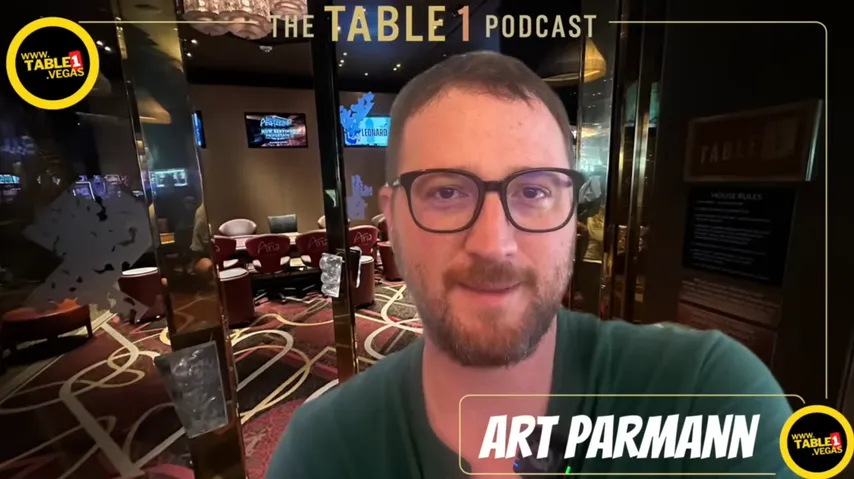
– All right, so what we typically do is we like to go back in time to when you first found poker and realized maybe you wouldn't contribute so much to society after all. So why don't you take us back to your childhood? Did you guys play a lot of gambling games growing up or anything like that? Strategy games with your family?
– Not too much with my family, but yeah, definitely with my friends when I was younger. I can trace it to playing Magic: The Gathering when I was like 13 or 14, and then started doing $5 home games with my buddies, poker in their parents' basement. I found out there's a lot more money in that than in Magic. That's what got me seriously interested in it, like at the end of high school and then into college. That's when I started playing seriously in college, studying, and playing a lot of online poker. That's how I started. That was back in... So yeah, I'm 36 now, so this was like the early to mid 2000s basically.
Party Poker was my first site. I think I first put money on when I was like 16 years old. I just got my mom's credit card and played Limit Hold'em. I had no idea what I was doing. That was kind of like the high school era. The first year or two I was just clicking buttons. Then once I went off to college, I started playing No Limit, playing cash games on PokerStars, Full Tilt, and some of the smaller sites too, because I was a cash game player. I liked to be on those sites because they were fishier sometimes.
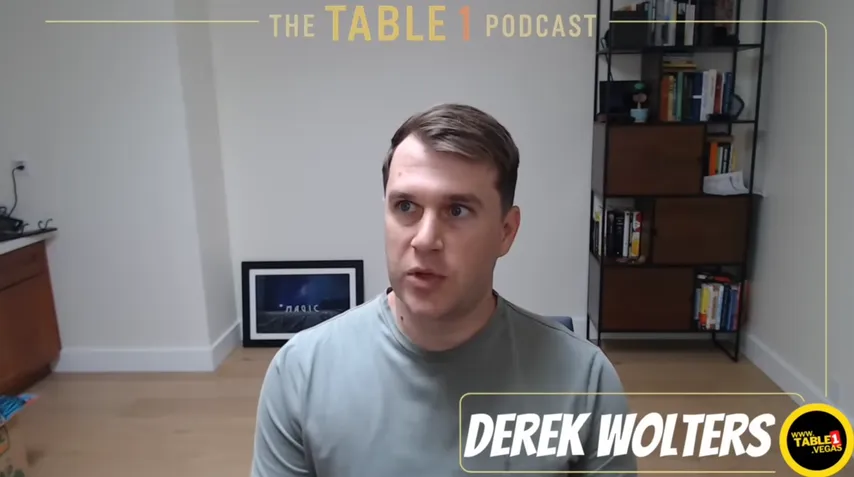
– What was your online handle?
– I had different ones on all the sites. Most people would know me from Two Plus Two way back. I was Curative on there. My PokerStars or Full Tilt names, nobody would have known those.
– Okay, so you couldn't win at the tournaments, so you decided to back people. Got it.
– No, I did. I did see you have some scores on your Hendon Mob, including a third place in a WPT. 2018 and 2017 I had some good WPT runs. I did okay back in the online days, but I was always a cash player. I was going to school, had a pretty tough class load, and I was partying with my roommates every weekend and still somehow playing poker. I could never play tournaments because I wouldn't have like eight hours. I would just have like one hour between class and play some sit and goes or something.
I did have a pretty sick win my junior year at ASU. At this point, I had met the other three poker players on campus. They were one year younger than me: my buddies Jake, Greg, and AJ. We combined to rent a house together off campus and we would play tournaments together. We were playing a Saturday tournament session and it was mini FTOPS. I entered a two-day tournament that was six max, $200 buy-in. I made day two of that, so we started playing again the next day on Sunday, but then our internet went out. We all got into our friend's van and drove to the university and posted up in the science library. I can't remember how long it took, but I kept playing there for six or seven more hours. I ended up winning that tournament for $120,000. That was when my bankroll got above 10k or something.
– Oh, so that was a huge step change for you. That reminds me of that Ryan Depaulo story where he won a bracelet in his car because the internet went out.
– Yeah, I saw the video he did after that, celebrating in the park. That was cool.
– But you were pretty disciplined then to not just go pro right away. I had a 3k score in my sophomore year and I was like, "All right, I'm done." So props to you for that.
– The games were so soft back then, so that was probably the right move. I was on a scholarship, so it was kind of free. Looking back, I'm like, why did I finish? I hated those classes in the last year.
That's probably what got me hooked on tournaments. I really was a cash player before that, online six max, like $1/$2 or $2/$4 or whatever. I had recently been working with a coach. I was part of this coaching program with Jay Carver, Jason Somerville—most people would know him. He was a tournament player, and I was getting coached by him. But I was like, yeah, I'm never playing tournaments. This isn't helping me that much. Then I won that tournament and I was like, oh yeah, these things are really soft. They're really fun.
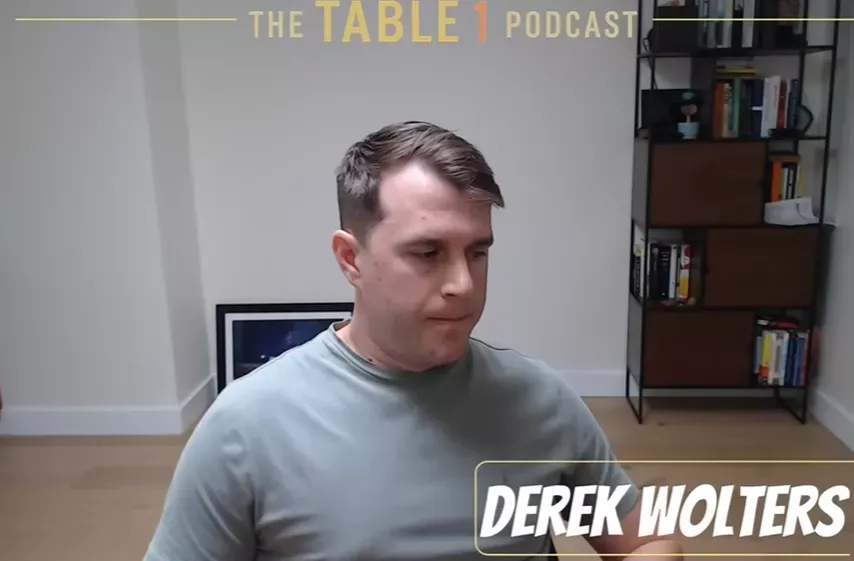
– Now, that was early on—you said you were a junior, so you were just about 20 years old. And then when you turned 21, you could start playing live tournaments. Did you just hop right into the live streets?
– So that was a tough entry to live. And then I think I went to PCA the next year, and that was when I finally met other pro poker players. That was really cool.
Yeah, I'm looking at the payouts on that Arizona State. 336 for first, second is 167, and it just cuts in half kind of all the way down to where you get 10K for eighth. That must have been kind of heartbreaking and exciting all at the same time.
It was. I mean, to final table your first ever bullet of a live tournament—I was running hot—but yeah, the payouts were brutal.
– Okay, so you're tight with Jake, and he had a monster score. And being the piece buyer that you are, did you have a little taste of the Main Event as well?
– Yeah, that whole Main Event run was pretty wild for us. I think that was my second full year in Vegas for the World Series of Poker. Jake was 21 at the time, so I was like 23. I played the whole series. We were roommates and had an Airbnb there. Jake was still in school, but he was one of our best friends, so he would come out for a week or two at a time. We convinced him to play the Main. He was playing $35 staked at the casino at that time, had no prior success, but he was a beast. So we put together most of the buy-in for him.
His story from that tournament is crazy too. He sat with Phil Ivey on Day 1 and basically owned him in massive pots. He played out of his mind that tournament and made it all the way to the final table. Third place for three and a half million. That was my biggest staking score by far at the time. Still is, actually.
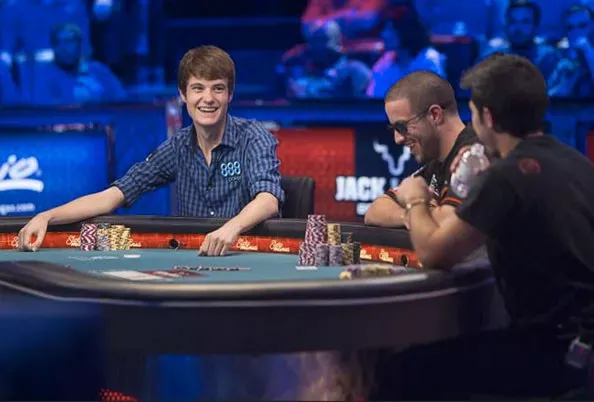
I ended up having like 17 percent of that win, and a number of my other roommates had big pieces too.
it starts to get surreal around Day 6 or 7 when there are like 20 or 30 people left. Before that, you're like, “Oh wow, they're making a big run. Maybe a 50K score, maybe 80K. This is really awesome.” And then suddenly it feels real — they could actually make the final table. It’s like, “Oh my gosh, this could be huge.”
I remember that vividly. Just hanging with my other friends who had a piece, at the Rio, watching PokerNews updates, refreshing every minute. And sweating the final bustout for whoever got 10th place. I think that year two women got 10th and 11th — both pros, really good players, though I forget their names. So we were super happy for Jake, but everyone else was kind of sad. They wanted to see a woman at the final table.
And then there was a lot of prep during the November Nine break. A big gap between the last day and the final table. I think some players liked it, but for others, it added pressure — to get coaching, to change things up. We tried to help Jake as much as we could. We even did a simulated final table the night before — brought a poker table into the hotel room, set up the exact stacks, and each of us played the role of a different finalist.
Sweating it was intense. It was in the Penn & Teller Theater at the Rio. We had like 20 or 30 people from our hometown and poker friends on the close rail. I was definitely drinking heavily. It was so nerve-wracking.
Any pro poker player knows — when you're playing, you're cool and collected. But when you're on the sidelines, with no control, it's way more stressful. Luckily, we had a couple people on the rail who kept it together and could talk to Jake. That wasn't me — I was just in the back enjoying the ride.
I remember a big hand Jake played against Jesse. Jesse is a pretty good friend of ours now. I think they got it all in on the turn. Jake had like 70 percent equity or more, and Jesse ended up winning the hand. I was sitting there calculating, “Okay, if Jake wins this, that’s an extra $500,000.” Then he loses it. That was insane. Big swing off the felt.
– In your Hendon Mob I see 3rd place at WPT...
– Yeah, during that time — like 2017, 2018 — I was really serious about the staking. Full-time staking. I was helping those guys a lot, and that helped my game too. Those were two of my best years playing poker. I found a lot of success in the WPT during those years.
So yeah, this one in LA — it was my third WPT final table. I ran really well the first couple days, and I think it ended up being a four-day tournament. The final table was pretty stacked. Toby Lewis got second — I played with him that whole day. The guy who got first, Dennis, was a maniac player. Super fun to play with. Constant table talk. I think Phil Hellmuth got like 11th in the tournament that year. I played with both of them when we were down to two tables. It was really entertaining.
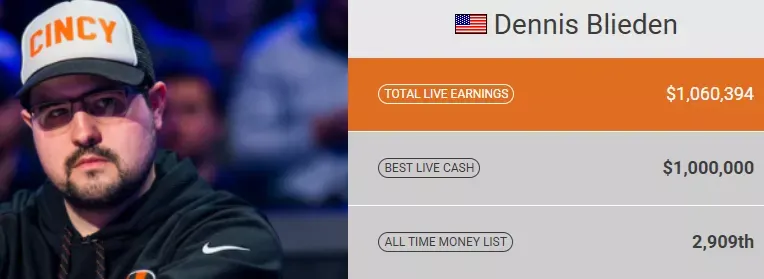
But yeah, I was kind of chilling during the last few eliminations before the final table, then won some big hands at the final table. I was definitely in a position to win the tournament. I think I had a chance to knock Toby out when we were three-handed, but didn’t win that hand. I played a few hands against Dennis that I wasn’t super happy with. He was literally playing 70 percent of hands, three-betting everything. It's kind of a dream to play against someone like that, but with the cameras on and the stakes high, it was a lot to deal with. So that was a really interesting one to play out.
That ended up being my biggest live score. I was super happy to get third for about $400,000. It was really cool to have a televised final table. That one was pretty big — a lot of my friends and family saw it and I was like, "Okay, this is kind of cool." I didn’t need to play as many of these tournaments anymore. At that point, I was kind of on my way out of poker.
– So how do you think about staking versus just buying pieces? And what has been more successful for you overall? I mean, I guess we have to discount the Main Event a little. But yeah — just rattle off the hits.
– I started by buying pieces of my friends. We were all online players playing smaller buy-ins, and when you move to live events with thousand or two-thousand-dollar buy-ins, it’s a lot. So naturally, you want to sell a few percent, maybe 20 or 30 percent. I got pretty lucky early on doing that. I had really good deal flow. I knew a lot of people online and was getting deals that weren’t going out to the public.
I think I even had a piece of another person who made the Main Event final table my first year in Vegas. I think they got eighth or ninth. It was a much smaller piece — maybe 5 percent — but still. I was just buying from people I knew. Then I got into the Two Plus Two marketplace, where they had a forum for buying and selling shares. That was basically my homepage for years. I would check it five times a day.
I partnered with some of my best friends who lived in England. I would check it during US hours, they’d check it during UK hours, and we tried to buy every good player we could on there.
– Did you have to check it so often because stuff would sell out fast, or were you just looking for good deals?
– Early on, things didn’t sell out fast. But after a couple of years, a few whales entered the forums with just as much money as us and started buying pieces. So for the best players, yeah, you had to act quickly. After that, we moved toward DMing players directly, negotiating, building relationships.
Eventually, that’s how the forum kind of faded away. No one really posts there anymore. Now it’s mostly done through Twitter or private DMs. But that forum was huge for me. I met a ton of people there. People I would go on to back full-time. I probably had five or ten big scores just from that forum — like $50K or $100K wins.
That was my entry into investing in poker players. I would encourage any poker player to do this. I think it's one of the best things you can do — monetizing your network and relationships. Helping friends out. It's win-win. You get positive ROI and help your friend lower their variance. Everyone should be buying pieces.
It's really not risky, because they’re one-offs. There’s no makeup. Incentives are aligned. It's a great business. It’s just really hard to scale. It's hard to invest more than a few hundred thousand a year, I’d say. But if you're a pro making a decent living, you could be making $20K to $50K more per year just by buying pieces of people.
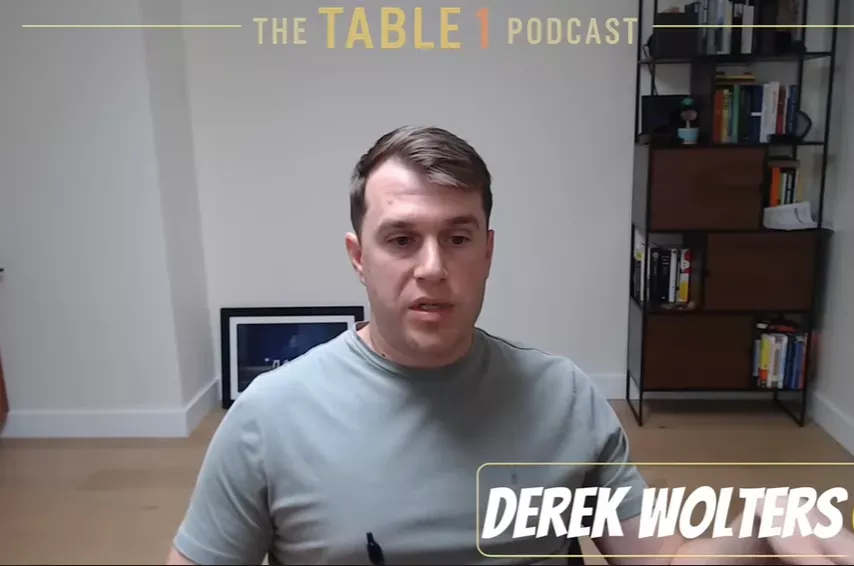
– Did you have a big spreadsheet with ROI calculations? Did you just go off feel?
– It was all qualitative. Just based on market prices. I didn’t have a top-down model that could tell you someone’s true ROI in a WSOP 1K. I think I could build that today if I really put in the time, but I was basically just looking at everything available. Especially for the World Series of Poker, there would have been a bunch of people posting—like 10 or 20 people. They’d post their schedule, what they wanted to play, their past results, and a little bit of personal info. I would just read all of those. So if you can read 20 and buy the top five, it's probably going to be profitable.
Back then, all the markups were in a very tight band. It would have been like 1.1 to 1.25. But in reality, there were pretty big differences in skill levels between players. Still, most of them would settle in that 1.2 or 1.15 range. We tried to do what we could—negotiate, gauge supply and demand. If a post sat there for days and no one was buying it, clearly the price was too high. So you’d DM them and ask for a little lower markup. You’d try to be respectful when you do this sort of thing.
That was a big thing I learned. When you're talking to a player, their self-worth is often tied up in their markup. They’re thinking, “My friend sold at 1.2, I'm just as good as my friend, I can’t sell at 1.15.” It’s going to make them feel bad. So you have to make them understand—look, I’m just trying to make money here. I’m trying to invest. I'm not saying anything about you or your skills. I respect you as a player. That’s why I want to invest in you.
So yeah, it was a lot of reading posts and trying to figure out who stood out. We really liked people who could beat online games, because back then, online games were much tougher than live. If someone only played cash at their local casino, and now they wanted to go to Vegas and compete with tournament pros from around the world who had played thousands of MTTs—it was obvious who was going to win in that scenario. So I had a bias toward online guys. I thought they could adapt and their skills would transfer over. Edges were really big back then, so it wasn't too hard to pick winners.
– Do you know your lifetime piece-buying ROI offhand?
– Good question. For ROI—let’s see. It’s probably pretty high, to be fair. Maybe 50% or even 80%. But that’s skewed from scores I bought into back in 2012, or from deals I had access to that no one else could get. My second-biggest score ever was from my good friend Colton. I backed and coached him for years. You can’t really get that kind of action in the public market. But yeah, I think I was up something like $1.5 million, with maybe $2 or $2.5 million invested. Something like that.
– All right, now that we’ve hit that, let’s get into some pain. Because it sounds like you learned some lessons the hard way with full-time staking. I know you have posts about makeup and incentives on your blog, and everyone should read them. It seems like you don’t really update it now since you’ve transitioned out of poker, but let’s talk about makeup deals—how they work, who should do them, and who shouldn’t.
– Yeah, I was writing a lot for a while. I have like 10 or 20 half-written articles in my drafts. I want to write more about it at some point.
But yeah, full-time backing is completely different from buying one-off pieces. It’s so much more risky. It’s a totally different animal. When I got into it, I thought it was kind of the same. You have to be way more hands-on when you’re full-time backing someone. It probably took me two years to realize that. And in that time, my players were just losing tons of money. I was probably backing eight to ten people at my peak, around 2016.
Then, by the end of 2016 or early 2017, I realized—these guys aren't taking care of themselves. They’re not studying, not game-selecting well. The incentives were misaligned. I realized the whole thing was a mess. I was treating it as hands-off. I would evaluate the player a little before signing them, but then I’d give them money and just go focus on my own game. That didn’t work.
So around 2017, I started taking it seriously. I had to cut a couple of guys—two or three. The ones I kept, I worked very closely with. Talking on the phone for an hour each week. Setting them up with coaches. Being more strict with game selection. And we were running into the classic issues of makeup deals. These were all makeup deals, which means when the player wins money, you split it 50/50. That’s great. But when they lose money, the backer takes all the losses. So if they lose $30,000, that’s $30,000 of makeup. Theoretically, the backer gets the next $30K the player wins to make up for it.
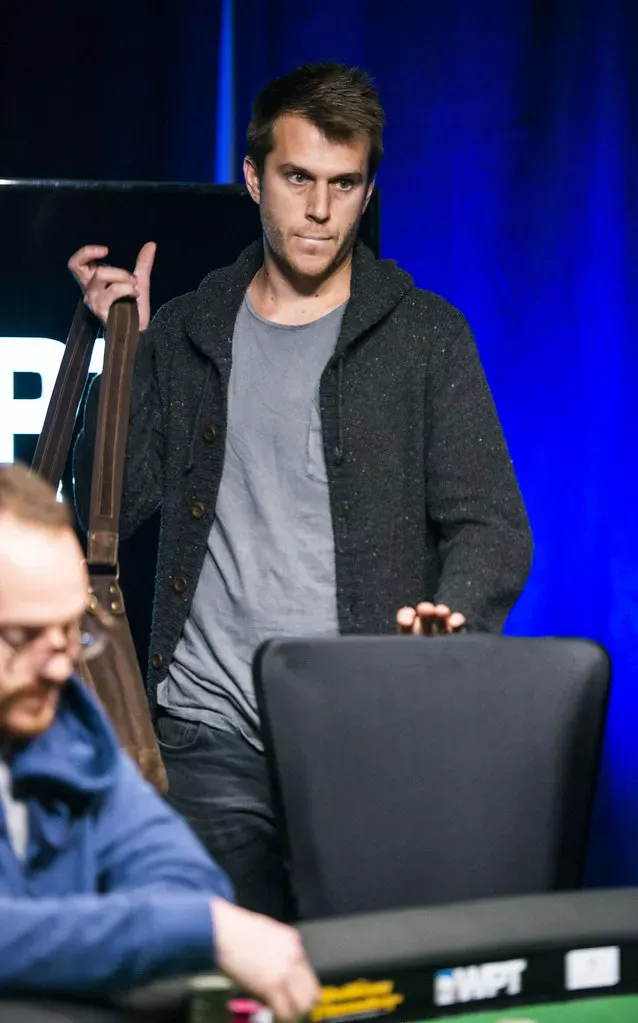
But in reality, if you’re backing someone with $3,000 in the bank who needs to pay rent and car payments—how are they going to grind long enough to make $30K? That could take six months or more. So you end up in these situations with misaligned incentives. The player in makeup, their risk tolerance shoots up. They want to play big tournaments. They want to take shots in cash games they’re not even winners in, just to try to get lucky.
That’s why most makeup deals fail.
Read– Are you still pretty active backing?
– I do still back one player. I've worked with him for about 10 years actually. He was one of the first players I ever staked. We’ve been through a ton together on his poker journey. He just had his biggest live win of all time a few weeks ago with a nice six-figure score, and he’s close to playing on his own money. That’s been my goal over the last six or seven years: not to start backing anyone new, but also not drop anyone who was doing the work and really trying. I just wanted to help them build their own bankroll. So I've kind of lost one player a year on average over that time, and now I’m just backing one player.
– What are you doing now, by the way?
– I manage a sports betting team. We don't originate bets or anything, but we just help other people get bets down, basically.
– What advice would you give to those buying shares in the 2025 World Series?
– Yeah, at the World Series of Poker today in Vegas, I really like investing in people in the Colossus or the $500 event—whatever they call it now, like the Reunion event. It gets something like 20,000 entries. Just back anyone in that. That’s like free money. You want to think about how long a player will preserve their edge across the whole span of the tournament, not just starting on Day 1 when the tournament’s as soft as it’s ever going to be. If you're buying someone at 1.22 for stuff like that, it’s probably going to be losing most of the time—especially if we’re talking about a player who wins at mid-stakes online on WSOP.com. They’re probably not beating a lot of stuff at 1.2 markup.
So yeah, I’d try to get it down to 1.1 or 1.15. If you can find a fantastic player, you should pay a premium for them.
– And sellers?
– I think these platforms—I’ve never used them, like PokerStake or any of those—they sound great for a recreational who just wants to get a sweat and have fun investing. I think they’re awesome products. But if you're a pro poker player, I don’t think you should be using those. You should be creating your own relationships with other players. Don’t pay the 5% vig to a site or whatever they charge. That’s a lot in the long run.
Build up relationships. That gives you a competitive edge in the landscape. You’ll just make more friends. I’d encourage people to cold outreach, actually talk to the players you’re investing in, and try to meet them.
